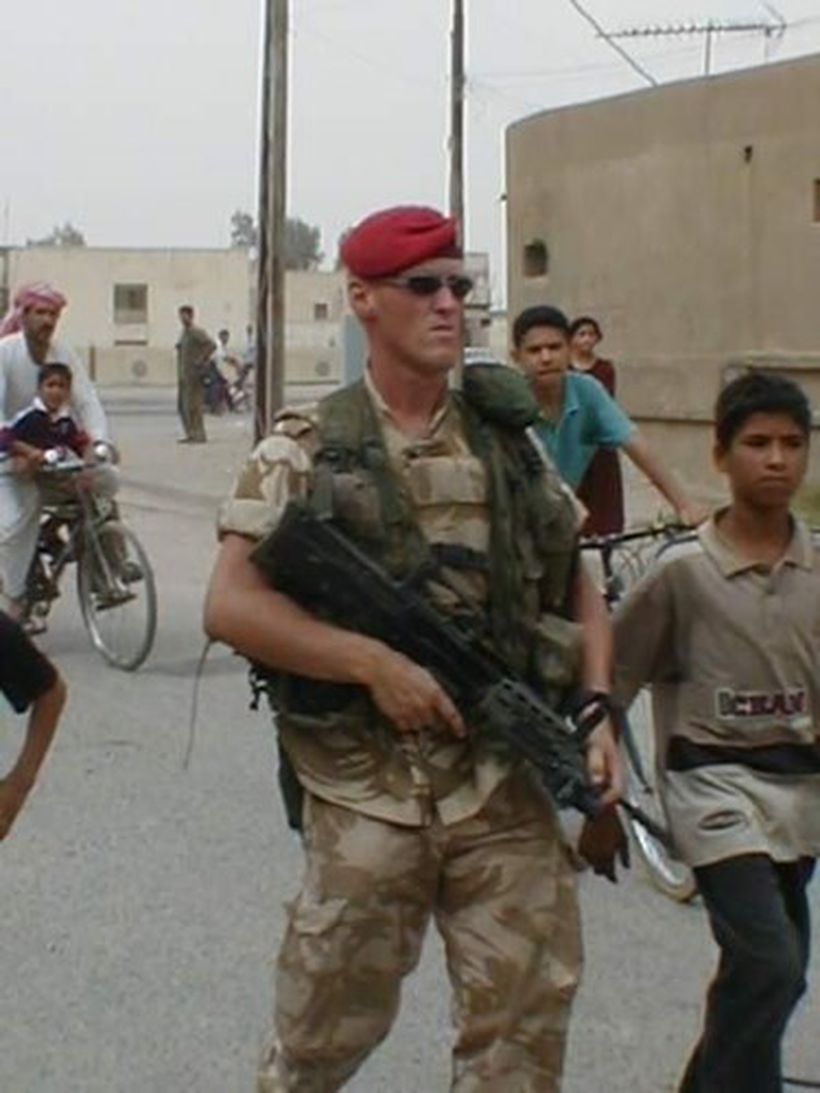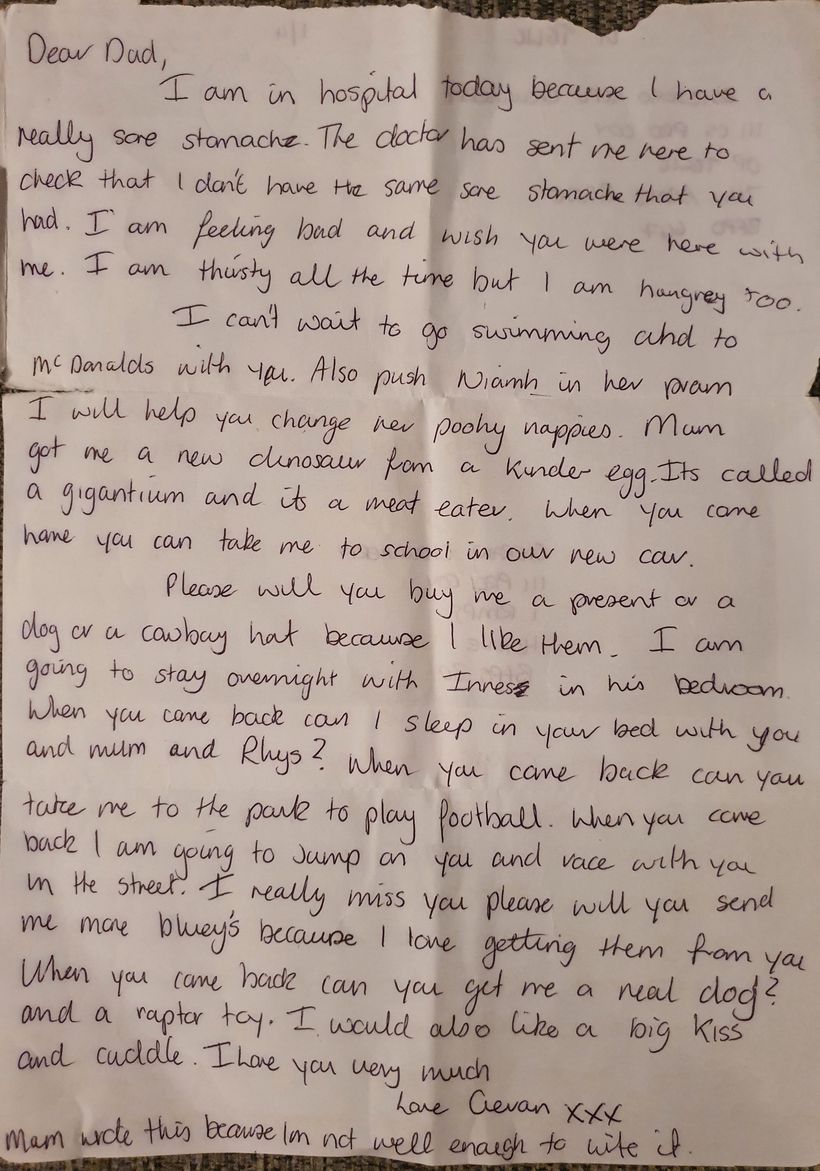Updated on
"The month before I deployed, we found out my wife, Jennifer, was expecting our third child. My sons were five and six so it’s quite emotional thinking back to that time. The separation was really hard on us all but especially my younger boy, my wife had a keyring with a photo of me made for him and she gave him one of my t-shirts which he slept with under his pillow. The unfolding war was all over the news and although the boys were young, they knew I was in danger." says Mark.
"When we were in Kuwait there was absolutely no communication with home other than airmail 'blueys' until we moved into Iraq and got established. I remember opening letters the boys Cieran and Rhys sent included drawings of their matchstick family, one had a big circle to show my wife’s growing belly. The letters helped keep me going."
"Once we were settled in Iraq, we got phone credits but we’d eat through them really fast. There are two calls I remember, one was when we’d taken control of a police station in Basra, I was up on the roof when shots went off. She asked, ‘What’s that noise?’ I said calmly, ‘Love, I’ve got to go, I’ll phone you back later.’
"The second time was when the United Nations lifted the sanctions marking the official end to the war and shots were fired around Sadaam Hussain’s palace whilst I was speaking to my wife – I told her it was fireworks. You had to tell lies, in letters or on the phone to lessen the worry. You didn’t know what was going to happen or when you’d be coming home."
"It was the night before we moved into Iraq that I had a near-death experience after nearly getting hit by a Challenger tank which was diagnosed as PTSD years later. It was March 2003, and we were lying in the silence of the Kuwait desert, waiting for the attack. Missiles were fueled for distance, you are just waiting for them to come down, you just hope the noise of the missiles doesn’t stop – that means it’s going to drop near you.
"As I was in the Royal Military Police, we had vehicle check points to ensure everyone was going the right way into Iraq. By the time we got with the rest of our company we were told that three engineers had been taken hostage. We put a ring of steel around Azabaya to try and get the engineers back.
"We were at that checkpoint continuously for 16 days. At that point, your brain has to switch off from your family and focus entirely on your job. We were now almost two weeks into the invasion, and we’d had no contact with home, there was no way to get ‘blueys’ out.
"A senior officer passing through our check point let us quickly use his satellite phone. I called my wife and my mum answered as she was across in Germany looking after my wife. She screamed, 'Mark!' and burst into tears. I only got the chance to say 'I am ok. I am alright.' When you think about how many ways of communicating, we have now, it’s emotional to think back about how loaded with meaning those few words were.
"Since then, I’ve survived testicular cancer, being medically discharged and suffered a bad leg break while playing football in the Irish League. But through sports recovery at Help for Heroes I am on Team UK for the 2022 Invictus Games.
"Being part of a team has helped me cope with my PTSD which has helped my family as a whole. Throughout lockdown I’ve been helping my son with his landscape gardening business, it’s been a difficult year for us all, but it has been fantastic to spend so much time together.
"I knew I’d saved some of my ‘blueys’ in a box in my daughter Niamh’s room – she turns 18 this year! I didn’t realise I’d saved more than 30 of them and we shed a few tears re-reading them, it’s like a precious family time capsule."




